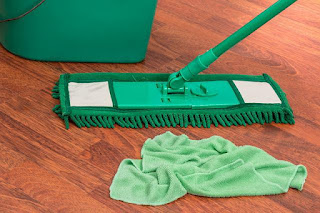What exactly is monkeypox? Is it on the rise? Should you be worried? This blog will help you better understand monkeypox, and what you can do to control it if you suspect that your family or community might be exposed to the disease.
What is monkeypox?
Much like measles and mumps, monkeypox is a rickettsial disease. It's spread through close contact with an infected person or animal, usually by breathing in droplets from their coughs or sneezes. Symptoms include fever, headaches, muscle aches, and sore throat. About 1 in 10 people will also get a rash. The illness usually clears up on its own within a few weeks, although it can lead to complications in rare cases where it spreads to other parts of your body—like your liver or spleen. Pregnant women who catch monkeypox have an increased risk of miscarriage, while kids under five are at higher risk for death.
Where did monkeypox come from?
This virus is very similar to another, called smallpox. Smallpox was a disease that killed as many as 300 million people around the world before it was eradicated in 1980. During vaccination campaigns, some people were accidentally exposed to vaccinia (the cowpox virus). The human immune system responded by creating antibodies against both viruses, so someone who is vaccinated for smallpox will have antibodies against both smallpox and cowpox. Occasionally, someone will be infected with monkeypox and will have immunity from then on.
Symptoms of monkeypox
When symptoms appear, they can include fever, headache, muscle aches, backache, and swollen lymph nodes. A rash usually develops within 3 to 5 days of infection. The rash typically begins on the hands and feet before spreading to other parts of the body. Scabs form on lesions that cover large areas of skin and last for up to 2 weeks before falling off. Small fluid-filled blisters may also appear where there are no open sores. Blisters can occur inside the mouth or nose as well as on the conjunctiva (lids) of the eyes or genitals.
Is there a cure for monkeypox?
Unfortunately, there is no cure for monkeypox. Most monkeypox infections can be treated with supportive care, but patients must receive prompt treatment. Early medical intervention will help ensure proper treatment and decrease the likelihood of permanent damage. Public health officials are working hard to prevent future cases of monkeypox by encouraging people to stay current on vaccinations and wash their hands frequently. There have been no reported cases of transmission between humans, so we must keep it that way!
Is it contagious?
Monkeypox is a viral infection of rodents and primates, but it doesn’t spread directly from person to person. The Centers for Disease Control and Prevention say it’s highly unlikely for monkeypox to become established as an ongoing disease problem in humans because it spreads less easily from human-to-human contact.
How can I protect myself against monkeypox?
The best way to avoid monkeypox is by not coming into contact with infected people or animals. The Centers for Disease Control and Prevention (CDC) recommends that travelers take these steps.
Wash your hands regularly with soap and water or use an alcohol-based hand sanitizer. * Avoid touching your mouth, nose, and eyes with unwashed hands. * Avoid contact with people who are sick. * Stay home from work, school, and overcrowded areas.
What do you need to know about vaccine and drug development?
In addition to prevention, public health officials must be aware of what’s going on with vaccine and drug development. Vaccines are available for several types of smallpox, but you must know what you’re getting when you get vaccinated. For example, if a person has already had smallpox (or been vaccinated against it), then he or she should not get another smallpox vaccination.
The US government response plan
Though there are currently no known cases of monkeypox in America, epidemiologists, and public health officials are keeping a close eye on Nigeria, where large numbers of people have contracted monkeypox. The CDC has stated that they’re prepared to handle cases if they appear stateside. They’ve been monitoring those who’ve returned from Africa for signs of infection and created contingency plans for how to handle outbreaks at home.
Who should be vaccinated first?
The CDC estimates that 50 million people were vaccinated last year against smallpox—and there hasn’t been a case of smallpox in over 30 years. However, as with any vaccine, some are better candidates than others. If you’re at risk for monkeypox—or if you live or travel frequently within areas where exposure is likely—it might be worth it to schedule a vaccination appointment.
Next steps
In light of recent reports showing a rise in cases of monkeypox, many people are concerned about whether or not they’re at risk. Prevention is key when it comes to any disease outbreak. Following these tips can help you keep monkeypox out of your life: Wash your hands frequently, especially after coming into contact with animals and before preparing food. If you have a cut or wound, keep it covered until you can see a doctor. Avoid contact with people who are sick.




























